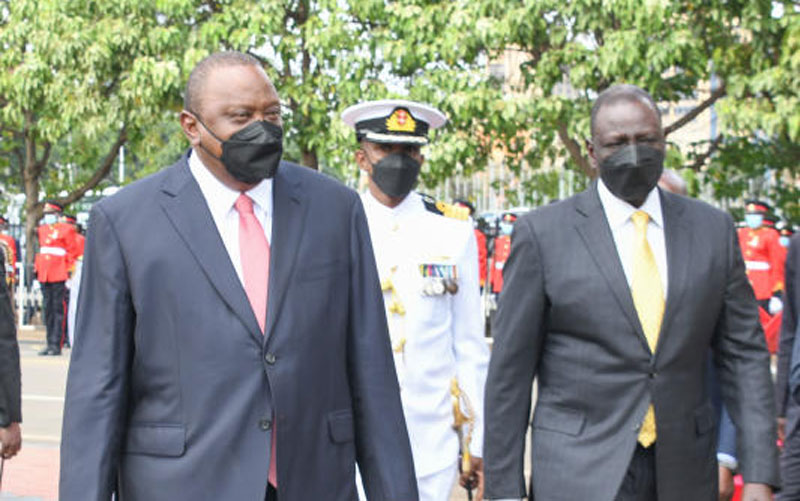×
The Standard e-Paper
Home To Bold Columnists

President Uhuru Kenyatta with his Deputy William Ruto during the State of the Nation address at Parliament, Nairobi. [Jonah Mwangi, DPPS]
What a political hammering between top competing parties in the past two weeks!